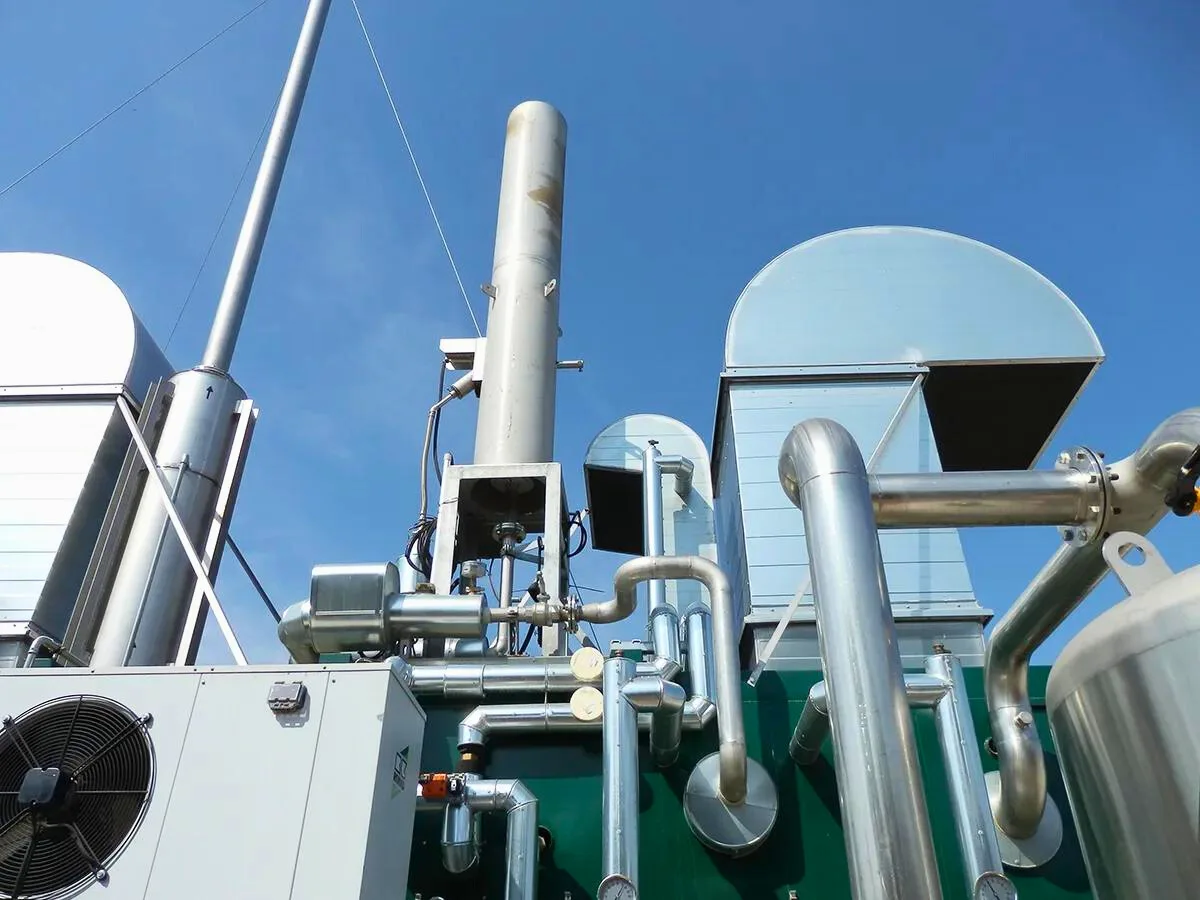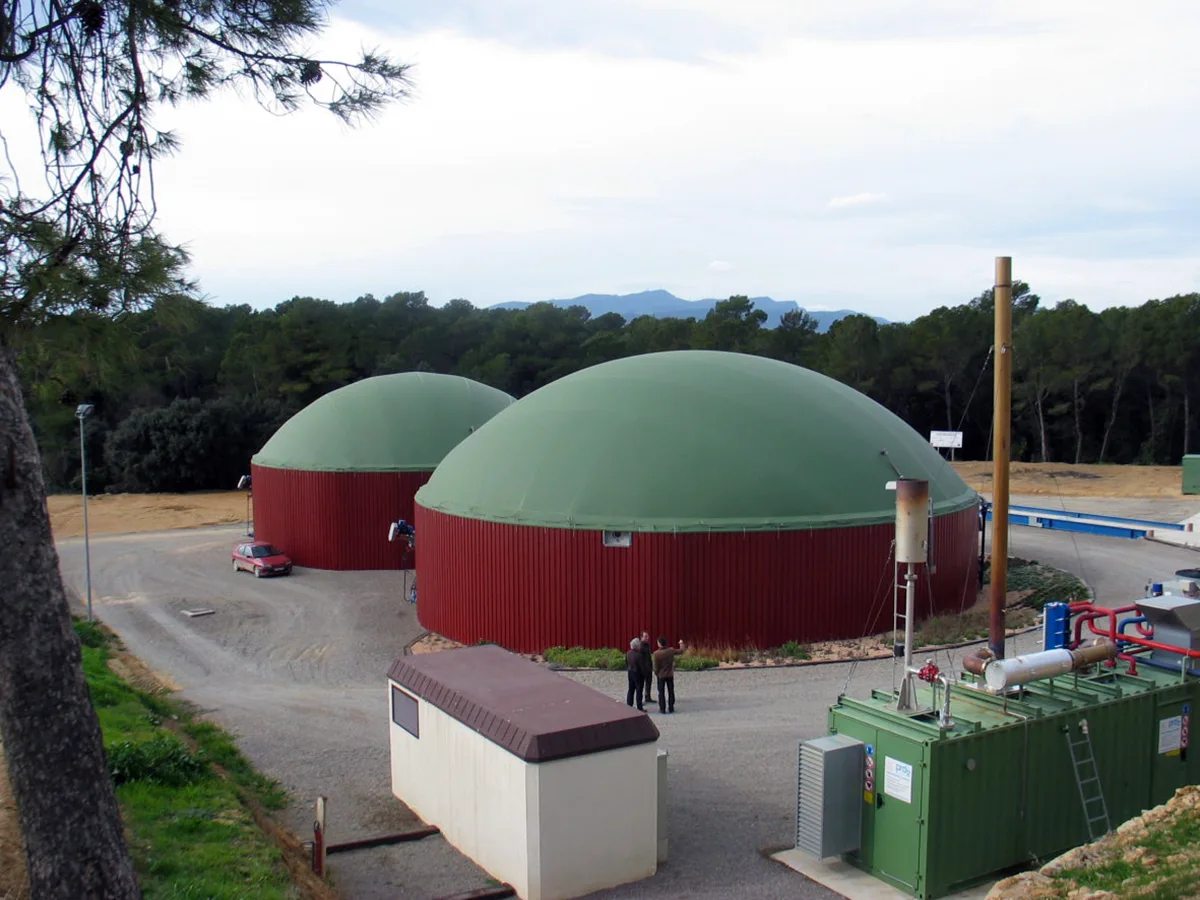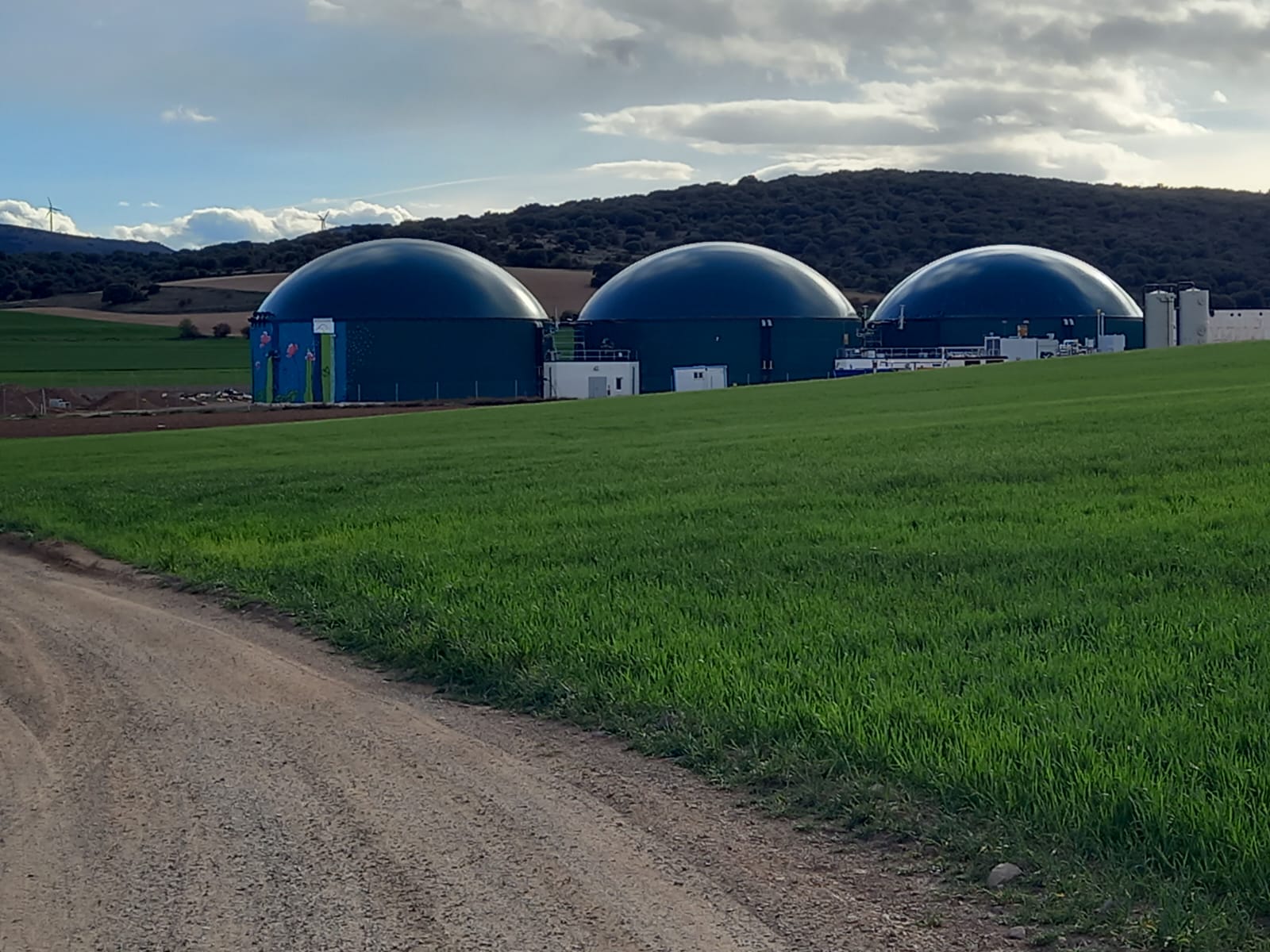What is a Biogas Plant
Biogas is the gas generated from the bacterial fermentation of organic matter under anaerobic conditions (absence of oxygen).
At an industrial level, the anaerobic digestion reaction can be controlled, and the energy (in the form of methane) released can be captured.
This is done through digesters (biogas plants), tanks where biomass is homogenized, and the time it resides inside, temperature, and other process parameters are controlled.

The produced biogas can be utilized in the following ways:
- Direct thermal use in boilers.
- Use in engine or turbine for electricity and thermal generation.
- Upgrading to natural gas quality and injection into the gas grid or compressed for vehicular use.

A biogas plant offers various advantages, such as:
- Economic benefits through the sale of electricity and heat, as well as savings in energy costs.
- Improvement of the fertilizing value of the obtained product (digestate).
- Reduction of odors and the spread of weed seeds in the digested slurry.
- Diversification of the company's activities.
- Contribution to the reduction of greenhouse gas emissions, in line with the objectives established in the Kyoto Protocol.
- Decrease in the pollutant potential of agricultural waste.
- Change of perception in the sector, being considered a modern and environmentally friendly activity.

